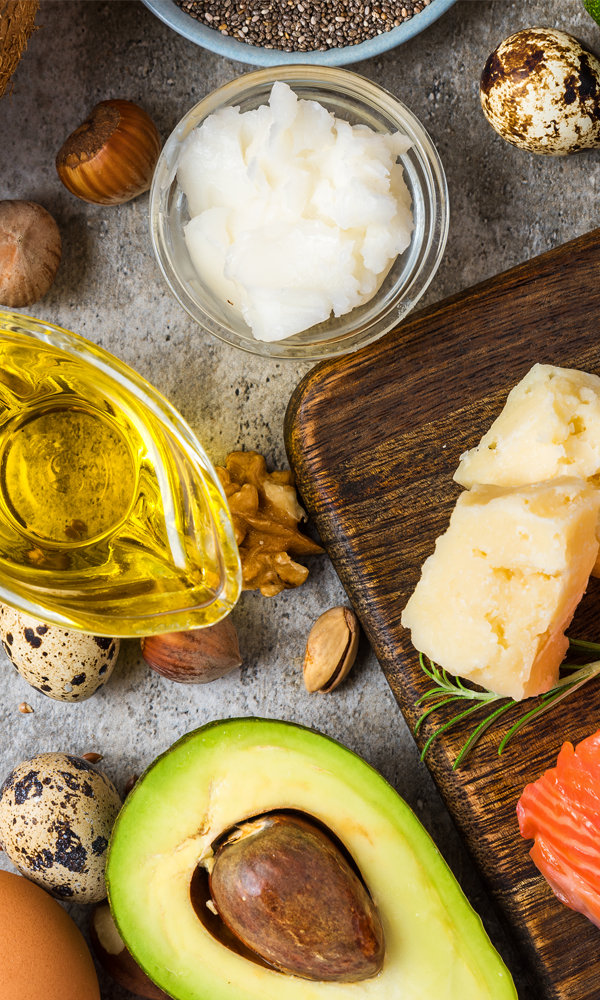MACRO CALCULATOR
Macronutrients, or 'macros' for short, include proteins, carbohydrates, and fats. The balance of these nutrients in your diet is crucial for success!
Do MACROS actually matter?
Much of the fitness nutrition information gets boxed into one of two basic arguments: Calories or Quality of food.
But the real, correct approach incorporates both. Yes, a calorie deficit will result in weight loss, and a surplus will result in weight gain. However, the ratios of protein, fats, and carbs have a substantial impact on how much muscle you gain (or lose), how hungry you are, and how much energy you have to work out! Without focusing on both components, it is very challenging to be successful in your fitness and dieting endeavors. Research and studies are great, but we don't live in a lab—the practical benefits of the right macronutrient balance are substantial.

Primary consideration
LEAN PROTEIN - Hit your goal
Getting ample (lean) protein regularly throughout the day should be the main focus of your diet plan.
Eating high-quality protein signals your body to increase muscle growth. This process burns additional calories and helps you achieve the lean, toned, and healthy physique you are [probably] looking for.
Those who eat plenty of lean, whole food protein regularly throughout the day will experience much greater feelings of fullness and satisfaction. This might be one of the most compelling reasons to consume more protein.
Without enough protein, you will struggle to gain muscle, may lose muscle instead of fat when dieting, and will be substantially more hungry.

Secondary Consideration
FATS - Limit to around 25% or less
It seems that everyone is talking about how healthy fat is, nowadays! Word on the street is that everybody should be seeking out good fats, right?
While dietary fat is necessary to sustain health, the typical American does not need to "seek out" additional fat beyond what is required.
Consuming more fat than your body needs (about 20-25% from calories) will not provide additional benefits. In fact, it will probably hinder your fitness goals.
Since fat is naturally calorically dense, a diet low in fat can allow you to consume more food overall, leading to greater feelings of fullness and satisfaction.
Moreover, excess calories from dietary fat are more likely to be stored as body fat compared to protein or carbohydrates. Maintaining a lower fat intake can act as a kind of insurance against weight gain if you overeat.
Fat does not significantly contribute to exercise performance, especially when compared to carbohydrates (which are the primary fuel for high-intensity workouts). Eating more fat than your baseline needs will not provide additional benefits for fat loss or muscle gain.
For all these reasons, keeping fat intake around 25% or less of your total calories can help you have a better chance of succeeding in your fitness diet plan.

Last but not least
CARBS - Sustain energy
Carbohydrates are important in the correct amounts. Carbs provide the body's main fuel for intense exercise, and intense exercise is exceptionally good at improving your hormones and physique.
Carbs will boost your mood, give you energy for your workouts, and are rarely stored as fat under typical circumstances (don't believe me, read this study). This isn't to say that eating excess calories as carbs won't lead to fat gain—excess calories from carbs can absolutely lead to fat storage and significantly impair fat loss. However, the key differentiator is that carb consumption is typically easier to manage both practically, and for the body as compared with increased amounts of fat intake.
Further, by eating carbohydrates, you can better signal "fullness" since the body is better at "balancing" protein and carbohydrates than fats. Meaning, your body is more likely to "stop" you from overeating if you are eating a low-fat diet than a high-fat diet.
To optimize your diet, you should first seek to hit your protein goals, then make sure your fat is limited to 25% or less. Then, fill the rest of your available calories with nutrient-dense carbohydrates. Vegetables, fruits, and whole food carbs are preferred.
